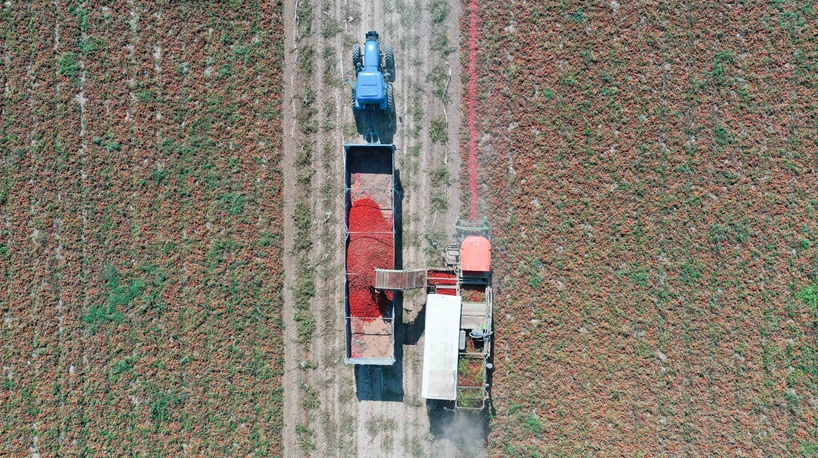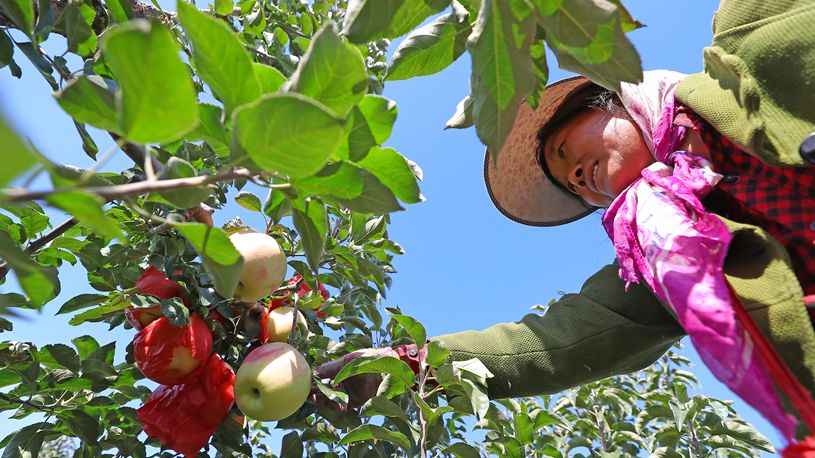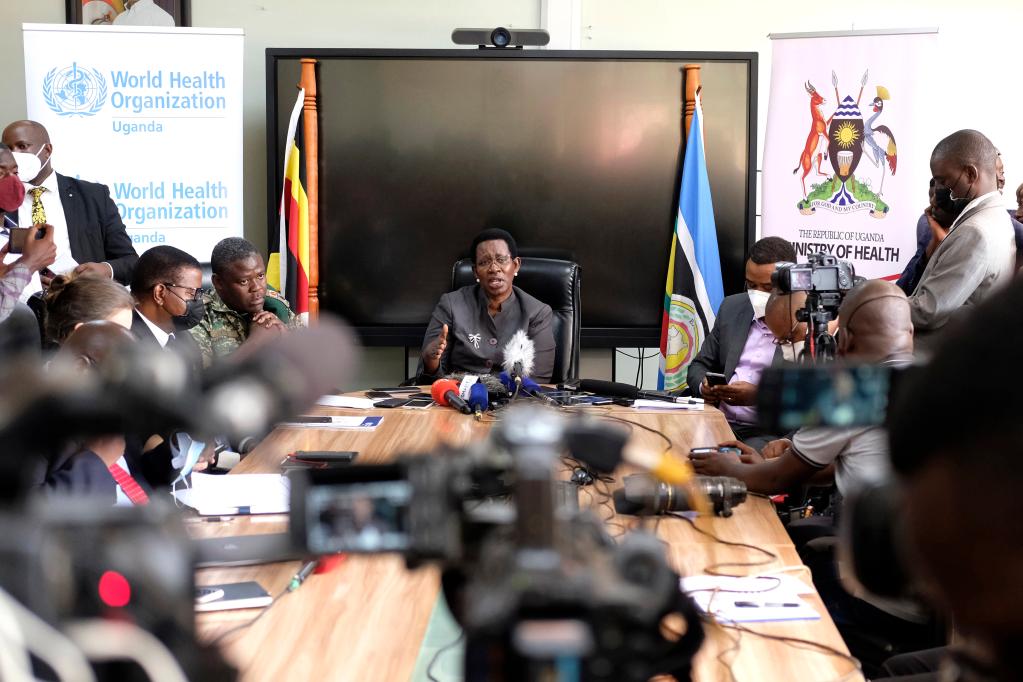
Ugandan Ministry of Health holds a press conference in Kampala, Uganda, Sept. 20, 2022. (Photo by Hajarah Nalwadda/Xinhua)
African countries are on alert, strengthening screening and surveillance after a relatively rare strain of Ebola virus broke out earlier this week in Uganda which has reported seven confirmed cases, including one death.
BRAZZAVILLE, Sept. 23 (Xinhua) -- African countries are on alert, strengthening screening and surveillance after a relatively rare strain of Ebola virus broke out earlier this week in Uganda. The central African country has reported seven confirmed cases, including one death.
The strain detected is a relatively rare strain, called the Sudan strain, which doesn't have an approved vaccine that can prevent its spread. It's been a decade since this strain was reported globally.
RARE EBOLA STRAIN
Uganda has reported seven confirmed cases, including one death, amid the latest outbreak of the relatively rare Sudan strain of Ebola virus, announced Thursday by Henry Kyobe, incidence commander with Uganda's Ministry of Health.
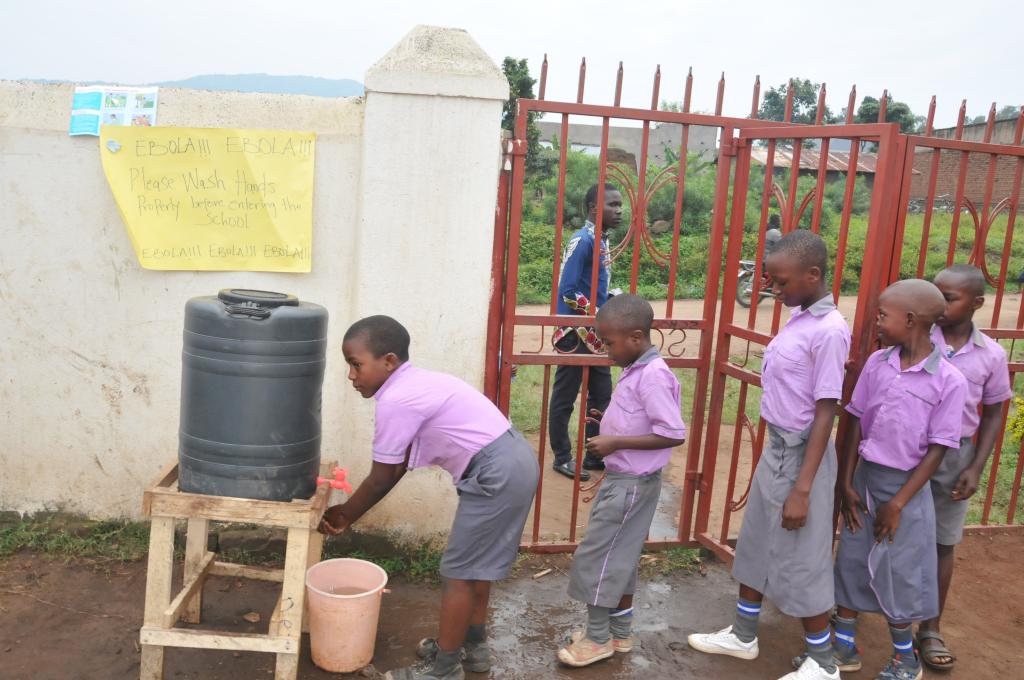
The file photo shows pupils queueing to wash their hands with chlorinated water to prevent the spread of Ebola at Quality Model Primary School in Kasese district, western Uganda, June 18, 2019. (Xinhua/Nicholas Kajoba)
Kyobe announced at an online press briefing held by the World Health Organization Regional Office for Africa, based in Brazzaville, capital of Congo, that the epidemic "appears to have started around the beginning of September."
So far, seven cases, including one death, have been confirmed to have contracted one of the six species of the Ebola virus genus.
Forty-three contacts have been identified and 10 people suspected to have caught the virus are receiving treatment at the Mubende Regional Referral Hospital in the town of Mubende, where the disease was confirmed earlier this week.
It is the first time Uganda has detected the Sudan Ebolavirus since 2012.
Ebola is a severe, often fatal illness affecting humans and other primates. It has six different strains, three of which, Bundibugyo, Sudan, and Zaire, have previously caused large outbreaks.
Case fatality rates of the Sudan strain have varied from 41 percent to 100 percent in past outbreaks, according to the WHO. Current evidence shows that the ERVEBO vaccine, which is highly effective against the Zaire Ebola virus, doesn't provide cross-protection against the Sudan Ebolavirus.
POSSIBLE SPILLOVER
Mubende is in the central region of Uganda and is about a two-hour drive from the capital of Kampala. It sits along a busy road leading to the Democratic Republic of the Congo (DRC), which has been long plagued by the virus.
There are gold mines in the area, which attract people from different parts of Uganda, as well as other countries. The mobile nature of the population in Mubende increases the risk of the possible spread of the virus, warned the WHO.
The WHO has deployed a technical team to the Mubende district. In addition, five international experts will be deployed, with numbers increasing if needed, according to the WHO.
"Africa's stronger homegrown emergency readiness is proving ever more crucial in tackling outbreaks such as Ebola," said Abdou Salam Gueye, the regional emergency director with the WHO Regional Office for Africa.
NEIGHBORS ON ALERT
Due to Uganda's previous outbreaks and the threat of importation of cases from the neighboring DRC which has fought several outbreaks, other neighboring countries have intensified their surveillance to prevent transmission of the Ebola virus.
Mutahi Kagwe, cabinet secretary in the Kenyan Ministry of Health, said Wednesday at a briefing in Nairobi, the Kenyan capital, that critical personnel had been deployed at the Ugandan border in western Kenya to help identify potential cases.
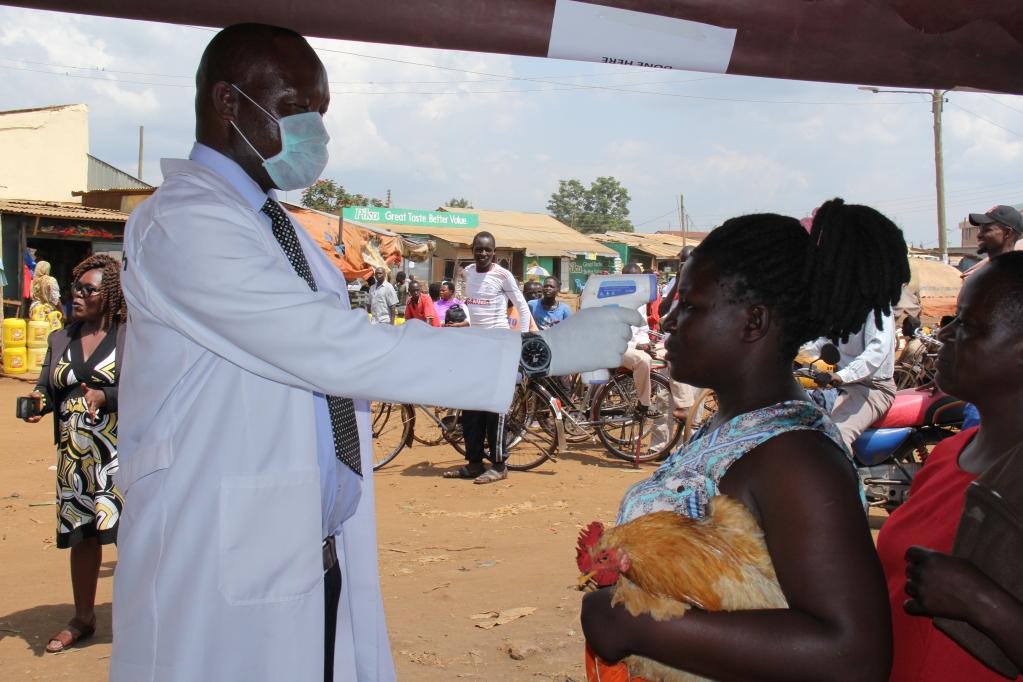
The file photo shows people screened for Ebola virus disease (EVD) at the Kenya-Uganda border in Busia, Kenya, June 19, 2019. (Xinhua/Fred Mutune)
Tanzanian health authorities on Wednesday claimed to have activated surveillance teams in high-risk regions of Kagera, Mwanza, Arusha, Mara, Kigoma, and Dar es Salaam, Aifello Sichalwe, the chief medical officer in the Ministry of Health, told Xinhua over the phone.
The South Sudanese government said Tuesday it is stepping up vigilance along its borders following an outbreak of the Ebola-Sudan strain in neighboring Uganda.
Victoria Anib Majur, the undersecretary in the South Sudanese Ministry of Health, advised communities living along the border with Uganda and the DRC to report any suspicious case of Ebola to health authorities.
The Africa CDC on Wednesday also urged neighboring and affected districts to enhance their disease surveillance and laboratory testing, and implement appropriate infection prevention and control measures. ■


